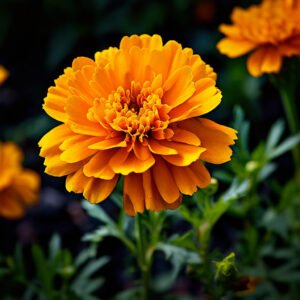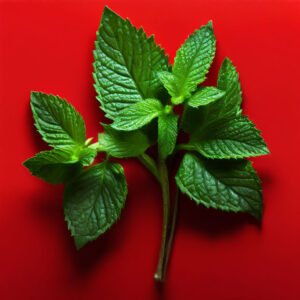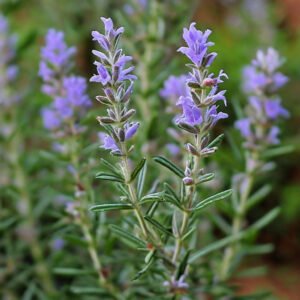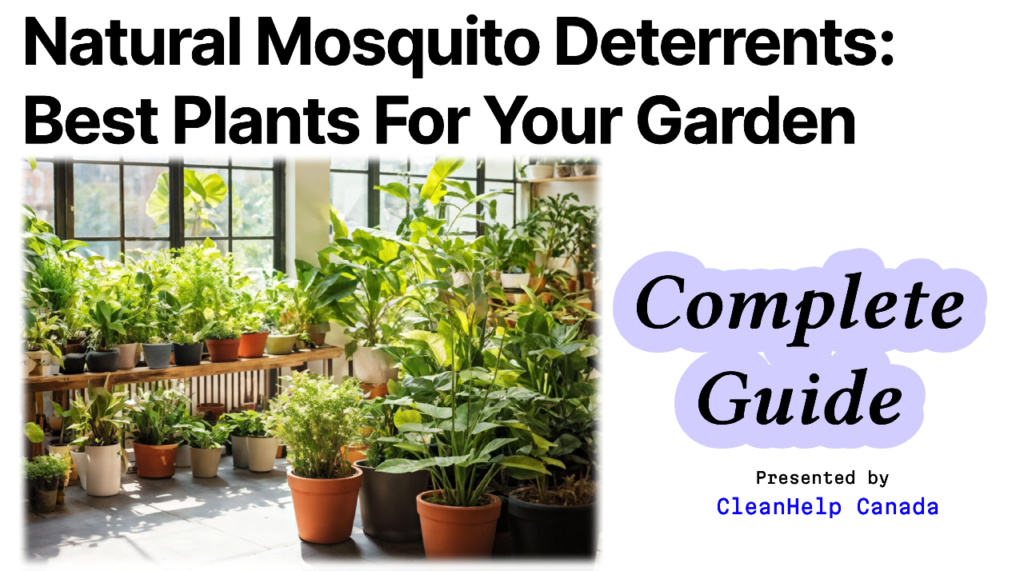As summer settles into London, Ontario, the warmer weather brings longer days and more time spent outdoors. However, with the joys of the season also comes an unwelcome guest—mosquitoes. These tiny pests can quickly turn a peaceful evening in your garden into an itchy ordeal. At CleanHelp Canada, we understand the importance of maintaining a comfortable and enjoyable outdoor space, free from these bothersome insects. While we specialize in keeping your home spotless with our House cleaning services and Residential cleaning services, we also care about your outdoor environment.
Fortunately, there’s a natural solution that not only enhances the beauty of your garden but also keeps mosquitoes at bay. By incorporating specific plants into your outdoor space, you can create a mosquito-free zone that’s both eco-friendly and effective. In this blog, we’ll explore the best mosquito-repelling plants that allow you to enjoy your garden in peace while adding aesthetic appeal and fresh aromas to your surroundings.
Why It’s Important to Protect Yourself from Mosquitoes
Before diving into the plants that can help keep these pests at bay, it’s crucial to understand why protecting yourself from mosquitoes is so important. Mosquitoes are more than just a nuisance; they are carriers of various diseases that can pose significant health risks.
1. Transmission of Diseases
- Vector-Borne Illnesses: Mosquitoes are known carriers of diseases such as West Nile virus, Zika virus, dengue fever, and malaria. While some of these diseases are more common in tropical regions, West Nile virus has been reported in Ontario, making it a local concern. Even a single bite from an infected mosquito can transmit these potentially severe illnesses to humans.
- Symptoms and Complications: The symptoms of mosquito-borne diseases can range from mild flu-like symptoms to severe neurological damage, depending on the illness. In some cases, these diseases can lead to long-term health complications or even be fatal, particularly for vulnerable populations such as children, the elderly, and those with weakened immune systems.
2. Allergic Reactions
- Skin Irritation: For many people, a mosquito bite results in an itchy red bump that can be irritating and uncomfortable. This reaction is caused by the body’s immune response to the mosquito’s saliva. While this is typically mild, scratching the bite can lead to secondary infections.
- Severe Allergies: Some individuals may experience more severe allergic reactions, known as “Skeeter Syndrome,” which can cause swelling, pain, and even difficulty breathing. In rare cases, a severe allergic reaction to a mosquito bite could require medical attention.
3. Impact on Quality of Life
- Disrupted Outdoor Activities: Mosquitoes can quickly ruin outdoor activities, forcing people indoors to escape the constant biting. This can limit your ability to enjoy your garden, patio, or any outdoor space, particularly during the warm summer months.
- Sleepless Nights: Mosquitoes are most active at dawn and dusk, and their high-pitched buzzing can disturb your sleep if they manage to get indoors. A lack of sleep can affect your overall health, mood, and productivity.
Given these risks, it’s clear that taking steps to protect yourself and your family from mosquitoes is essential. While traditional methods like insect repellents and mosquito nets are commonly used, by effectively strategizing and incorporating mosquito-repelling plants into your garden offers a natural and aesthetically pleasing solution to keeping these pests at bay.
The Best Mosquito-Repelling Plants for Your Garden
Nature offers a variety of plants that are known for their mosquito-repelling properties. These plants work by emitting strong scents that mosquitoes find unpleasant, effectively keeping them away from your garden and outdoor living spaces. Here are some of the most effective plants you can add to your garden:
1. Citronella Grass
- Key Features: Citronella grass is perhaps the most famous plant when it comes to repelling mosquitoes. The plant’s oil is a common ingredient in many commercial mosquito repellents.
- How It Works: The strong citrusy scent emitted by citronella grass masks the scents that attract mosquitoes, making it difficult for them to find their targets.
- Gardening Tips: Citronella grass thrives in warm climates, making it perfect for the summer season in London, Ontario. Plant it in large pots around seating areas or along garden borders to maximize its effectiveness.
2. Lavender

- Key Features: Known for its calming fragrance and vibrant purple flowers, lavender is a dual-purpose plant that repels mosquitoes while adding a pop of color to your garden.
- How It Works: Lavender’s sweet scent is loved by humans but despised by mosquitoes, making it an excellent natural repellent.
- Gardening Tips: Lavender prefers well-drained soil and full sun, making it ideal for sunny spots in your garden. Consider planting it near doorways or windows to prevent mosquitoes from entering your home.
3. Marigold

- Key Features: Marigolds are bright, cheerful flowers that not only add beauty to your garden but also act as a natural insect repellent.
- How It Works: The strong smell of marigolds is known to repel mosquitoes, aphids, and even rabbits, making it a versatile addition to any garden.
- Gardening Tips: Marigolds are easy to grow and thrive in sunny locations. Plant them in garden beds or pots near entryways to keep mosquitoes at bay.
4. Basil

- Key Features: Basil is a popular herb in the kitchen, but it’s also a powerful mosquito repellent. Its strong aroma works wonders in keeping mosquitoes at a distance.
- How It Works: The essential oils found in basil are toxic to mosquito larvae, making it effective in reducing the mosquito population around your garden.
- Gardening Tips: Basil loves warmth and sunlight, so plant it in a sunny spot. You can also grow it in pots and place them on your patio or near windows.
5. Peppermint

- Key Features: Peppermint is a refreshing herb that’s not only useful in the kitchen but also in keeping mosquitoes away.
- How It Works: The menthol in peppermint leaves produces a strong scent that mosquitoes find unpleasant, deterring them from your garden.
- Gardening Tips: Peppermint spreads quickly, so it’s best grown in containers. Place the pots around seating areas to create a mosquito-free zone.
6. Rosemary

- Key Features: Rosemary is a fragrant herb that’s often used in cooking, but it’s also a natural mosquito repellent.
- How It Works: The woody scent of rosemary is effective in repelling mosquitoes, making it a great addition to your garden.
- Gardening Tips: Rosemary prefers full sun and well-drained soil. Plant it near walkways or seating areas to keep mosquitoes at a distance.
Additional Gardening Tips for Maximum Mosquito Control
To make the most out of these mosquito-repelling plants, consider the following tips:
- Strategic Placement: Place the plants in areas where mosquitoes are most likely to be a nuisance, such as near seating areas, doorways, and windows.
- Companion Planting: Combine mosquito-repelling plants with other insect-repelling plants like lemongrass or garlic for an even more effective garden.
- Regular Maintenance: Keep your garden well-maintained by trimming plants regularly and removing any standing water, as this can become a breeding ground for mosquitoes.
- Use of Pots and Containers: Growing these plants in pots allows you to move them around your garden or patio, giving you flexibility in creating a mosquito-free zone.
The Benefits of a Mosquito-Free Garden
Having a garden filled with mosquito-repelling plants not only protects you from pesky bites but also offers several other benefits:
- Eco-Friendly Solution: These plants provide a natural way to repel mosquitoes, reducing the need for chemical repellents that can be harmful to the environment.
- Aesthetic Appeal: Many of these plants, like lavender and marigolds, add beauty and color to your garden, enhancing the overall appeal of your outdoor space.
- Aromatic Garden: Plants like basil, peppermint, and rosemary not only repel mosquitoes but also add delightful scents to your garden, making it a more enjoyable place to relax.
Conclusion
Creating a garden that naturally repels mosquitoes is a simple yet effective way to enjoy your outdoor space without the constant buzz of unwanted visitors. By incorporating plants like citronella grass, lavender, marigolds, basil, peppermint, and rosemary, you can create a beautiful, aromatic, and mosquito-free garden. As you plan your garden this summer in London, Ontario, consider adding these mosquito-repelling plants to your outdoor space for a more enjoyable and pest-free experience.
At CleanHelp Canada, we understand the importance of maintaining a clean and healthy home environment, both indoors and outdoors. Whether you need Apartment cleaning London Ontario, House cleaning in London Ontario, or any Residential cleaning services, we’re here to help. While you focus on keeping your garden mosquito-free, let us take care of your indoor cleaning needs. Visit cleanhelpcanada.ca to learn more about our Comprehensive cleaning services and how we can help you create a cleaner, more comfortable living space.
